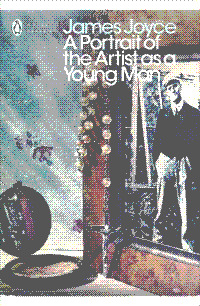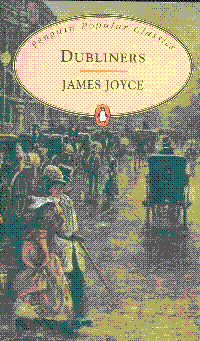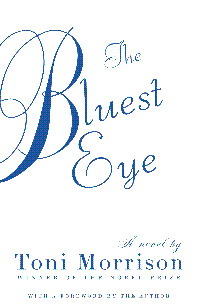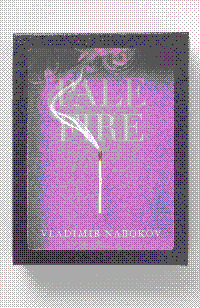
faust
Goethe
it's so painful to read poetry and be entirely aware that it's only a translation, but I thought walter kaufmann's translation flowed relatively well. and I liked the end of part one. I like when women in old literature go crazy and they're suddenly given a personality/interiority, and I think it's well done in this production on youtube.

a portrait of the artist as a young man
James Joyce
I really loved the stream of consciousness in the first chapter. it reminded me of the story "encounters" from dubliners when the old man was described as thinking in circles (lacanians when circles:). and, though I understand why the prose became denser, and I thought it was interesting when it culminated to poetics at the end of chapter four, nothing was as resonant to me than that first chapter. also, a portrait of the artist confirmed my theory that modernism did everything romanticism wanted to do but better; the contrast of the casual language of the dialogue and the narration overfilled with imagery is like if wordsworth wasn't lying about his admiration for common people.

dubliners
James Joyce
tried reading finnegans wake and after spending hours on the first five pages I ended up here. my weakness as an english major are short stories, I find even poetry easier to get invested in. these were interesting, though. my favourite was "encounters." I liked how the prose didn't compensate for the first-person child's perspective, and I liked how Joyce only wrote in first-person for the childrens' stories, allowing more introspection to the children as opposed to the performative-ness of the adults. I also liked "a painful case." it appealed to me when mr. Sinico said "love between man and man is impossible because there must not be sexual relationship and friendship between man and woman is impossible because there must be sexual intercourse." I also liked the immature father of "a little cloud," and I liked "a mother" as well. but I did start to feel impatient to get to Joyce's later works; even if I struggled with finnegans wake I was hoping for a little more of its playfulness in dubliners.

the bluest eye
Toni Morrison
it caught my interest at the passage on claudia's baby doll and then I read the rest in a fever. another unforgettable part to me was when cholly watches that man break open a watermelon; Toni Morrison writes cholly's assumption of masculinity and his hatred of women so sparingly, even innocently, that it becomes so clear that the violent men of her novel are not unique deviations from the norm but necessities of patriarchal white supremacy. and after writing this blog post I especially appreciated how faithfully she wrote of children. their dialogue feels natural and so accurate to children's logic that it shows how important it is to remember what it was really like to be a child.

orlando
Virginia Woolf
I read more translated books than books in original english but Orlando reminded me of how much I must miss in translations; I couldn't read Virginia Woolf's prose in any other way. Orlando is on a greater scale than I normally enjoy but the time moves so naturally that it feels simplier than it really is. I particularly liked when england's climate went "damp" at the turn of the nineteenth century… pale fire and orlando have shown me that books about writers don't have to be self-important (wordsworth, solenoid by mircea cartarescu). and I thought that it was eloquently put when nicholas greene was described by "the more he denounced his own time the more compacent he became" … I like how writers have always been annoying, it's just that now we have to see it unfiltered on twitter. also, I swear to god, in my notes I wrote "I might have poisoned my brain on anti-oedipus but this passage has to be their schizo on a walk," and then when I was later reading a thousand plateaus d&g directly reference "to take a walk like virginia woolf." in my review for genealogy of morals, I had a similar intuition for Deleuze and Guattari's references, and I'm proud of it…

the trial
Franz Kafka
reminded me of the dreams I hate the most where I'm too weak to move or react to anything. it was easy to think it was about persecutory delusions but that only put me in as accusative of a position as the court's... I remember being mostly eluded by kafka in high school so I thought I would prove myself smarter this time but I did not.

pale fire
Vladimir Nabokov
A lot sillier than I expected. redeemed postmodern fiction for me after cloud atlas! it is equally playful without the proto-millenial kind of self-awareness, and this time the obnoxious style of the fake author did not completely turn me off. actually, pale fire is a lot like the only good plot in cloud atlas (frobisher and Ayrs), and I'm realizing now that that was probably the reference.

theory
Dionne Brand
felt like peak literature after cloud atlas. it was a cute read. also refreshing to read a woman writer; you'll think you're a uniquely unidentifiable subhuman until you remember that everything you read/hear/watch is made by men. this book also reminds you that academics and their navel-gazing are really embarrassing; my interest in the career is purely another one of my humiliation rituals.

cloud atlas
David Mitchell
longest 400 pages of my life. so boring I thought I was losing the attention span I'm so proud of having. I like that studying english forces me to read beyond my taste, and I can always get something out of books I don't even enjoy. but I really struggled to feel anything for cloud atlas. I can do style without substance but not substance without style -- it was too much plot. I get why we're reading it for the postmodernism unit, but does postmodernism have to be so corny? I lost the little investment I had when the sci-fi dystopia turned out to be north korean. (hover to view spoilers) my one positive is that I liked the robert chapters, and the second at the end even slightly revived my interest. but timothy's were insufferable to read and it only gets worse. homestuck did it better!

in the skin of a lion
Michael Ondaatje
reminded me of Upton Sinclair's the jungle. not only for the early 20th century eastern european industrial labourers, but Ondaantje's references to his own work with archives made me think of Sinclair's journalistic efforts; even the labor of the book itself is forced on our consciousness. at first, I wasn't sure about a poet writing prose, but I can tolerate the more vague, concise language than the tumblr writer verbiage I expected (which was maybe an anachronistic assumption). we also read it with Hayden White and the Lacanian-historian-literary-critic indulged me.

the strange case of dr. jekyll and mr. hyde
Robert Louis Stevenson
embarrassed I only read it now. like Frankenstein, the plot details feel a little too convoluted when its premise is already general cultural knowledge. but I enjoyed it.
 books
books